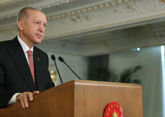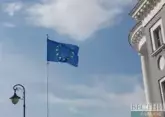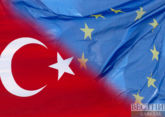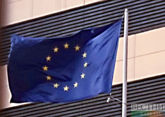One of the most important developments of the last week was the signing of the Treaty of Aachen between Germany and France, on the 56th anniversary of the Elysée Treaty that had paved the way for the reconciliation of the two big European powers in the aftermath of the devastating World War II.
Hurriyet Daliy News reports in its article Turkey’s place in a changing Europe that the Treaty of Aachen, signed by German Chancellor Angela Merkel and French President Emmanuel Macron, however, aspires to further strengthen ties between the two nations through convergence on key issues, like defense, economy, education and etc. Germany’s Ambassador to Turkey, Martin Erdmann, at a meeting on the occasion of the signing of the Franco-German Treaty of Aachen on Jan. 23, described both treaties of 1963 and 2019 as “game changers” and “revolutionary” for the European history. “The Elysée Treaty made France and Germany the engines of the European development and integration,” Ambassador Erdmann said, depicting the Treaty of Aachen as a tool to move things forward for the European integration. This new Franco-German effort will continue to highlight rules and values-based system as the safeguard of fundamental human rights, rule of law and democracy as well as to cement a multilateral approach on global issues, the ambassador stressed. Today’s global order has generated a score of disruptive trends, he underlined, designating this new initiative between Paris and Berlin as a response to reverse all these inclinations.
Charles Fries, the Ambassador of France to Turkey, for his part, designated the Treaty of Aachen as a new step in the Franco-German friendship and partnership through concrete projects in multiple fields. According to Fries, a keyword that would best describe the objective of this treaty is “convergence” between the two countries on especially the economy, defense, education and at the United Nations. One of the top titles of the treaty is “Security and Development” which stipulates new defense cooperation between the two countries. “Of course, we have NATO and European Union when we need each other. But, with this treaty, we have now a bilateral legal basis to ask each other’s defense capabilities in the event of an incident,” he said. The treaty does also envisage broadening cooperation and convergence between the civil societies, academic worlds, economic experts and youth of the two countries, Ambassador Fries said, “We are not doing all these only for ourselves but for Europe. It can be useful for convergence at the EU level.”
Both envoys recalled that France and Germany were hoping that this treaty of theirs would inspire other nations in the European continent as well for further integration.
Timing of the Treaty of Aachen
The signing of the Treaty of Aachen comes at a moment when the European integration has arrived at a crunch time with Brexit. The departure of the United Kingdom –if happens- will obviously have a tremendous effect on the continental politics and economics particularly with regard to the efficiency of the EU.
The French agreement with Germany on defense and security would create question marks on the effectiveness of the Franco-British defense cooperation as well as on future Transatlantic bonds under the continued rule of United States President Donald Trump. Merkel, speaking in Davos, was quite straightforward in explaining the scope of defense partnership with France which would include bold steps in launching a new generation defense industry portfolio. It’s obvious that France and Germany are setting up a new position on the top of the EU bloc through this very ambitious move.

Turkey’s take on this move
It was interesting to observe that the Turkish public opinion was interested merely on the “European army” part of the treaty. Turkish media did well cover the Macron-Merkel press conference but there was no official statement on how Turkey was regarding all these developments. No questions were raised on this to either President Recep Tayyip Erdoğan or Foreign Minister Mevlüt Çavuşoğlu during several Q&A occasions.
Perhaps, one reason is that this treaty was signed as Turkey’s distancing from Europecontinues. Despite efforts since mid-2018, normalization in ties with the EU is not looming ahead unless the Turkish government undertakes a set of comprehensive reforms and more importantly implements them to the full. The Brexit is two months away. French and German are developing a new European elite which would have drastic effects on the collective defense and economic structure of the continent. There are more fractions between EU members than ever in the past with the rise of far-right politicians on the continent. All these are inevitable signs of a period of change in Europe. It’s of vital importance for Turkey to make a sound analysis of these changes and an evaluation of its own place in this picture.










